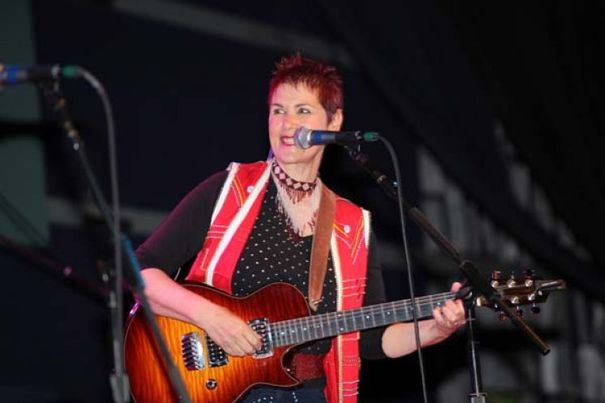REVIEW: WHEN VOICES MEET
by Olawale Oluwadahunsi

When Voices Meet tells the story of how South Africa evolved into the ‘rainbow nation,’ through the dedication of Sharon Katz, pioneer of the Peace Train Project. In the early nineties, Katz, referred to as ‘white in skin colour but black in the mind,’ brought 500 children together to form the Peace Train Project using music to preach peace across the country during the apartheid regime.
The title raises the question: what voices met? Children with hearts unsoiled, longing to see a united South Africa. They ask: Why am I a prisoner in my country? Why can’t I sit on a ‘White only’ seat? What’s wrong with my colour? Why is there so much confrontation and disturbances around just because my skin is black? What does black really mean?
Everybody is a prisoner in the country, says Katz. She is right. In the old South Africa, people separated by a street cannot cross over into another’s territory. And while whites are tertiary prisoners, the other races are primary prisoners. The hierarchy is clear: blacks form the base, whites the peak with Indian and coloureds in-between. The ‘coloured’ ones are prisoners on the fence, aware of their habitation but without a sense of belonging to the country’s culture or tradition.
What then is the unifying factor for the South African people? Katz suggests that harmony can be achieved through music. When Voices Meet then becomes an exploration of the way in which art can be a tool for change and revolution. A notion the film encourages by explaining that Katz was spurred into action after seeing the play, The Just Assassins. The state of the society may depend on art creators. What they produce may be panacea for a society’s problems.
Unfortunately, the documentary how tough it was to succeed. It presents a somewhat romantic version of events. Katz mentions threats from the apartheid government but without elaboration. Did she get resistance from her immediate family? Did it at one time occur to her colleagues, Nonhlanhla Wanda and Marilyn Cohen to back out? Did they have any medical issue to attend to? These questions are not raised, they are not answered.
Also, concerning access to funds and logistics, the movie makes it look so simple. If humanitarian work is that simple, the world would have been a better place. How difficult was it to get the children to sing? What about parental consent? Of course, in the apartheid regime there will be resistance from parents about having their kids join a project clearly violating the segregation laws.
An inspirational movie by all standards, When Voices Meet shows that every strike of the strings of today’s guitar echoes well into our future. But it may be necessary to hear the discordant notes as well.

